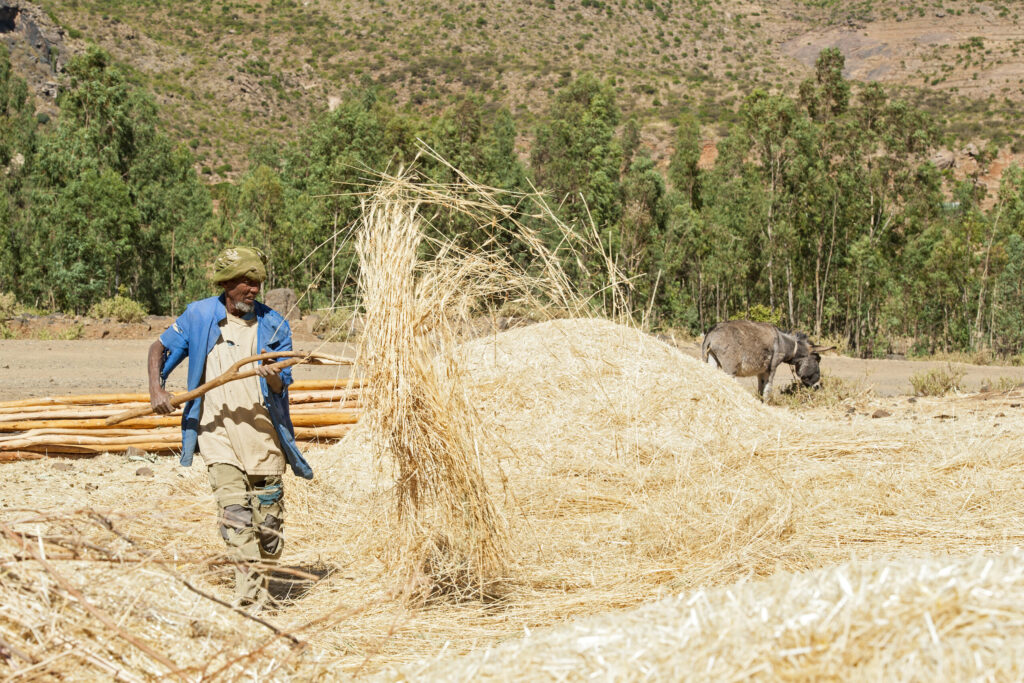
As the world faces mounting challenges from climate change, the need for resilient food systems has never been more urgent. Agriculture, a cornerstone of human survival, is increasingly vulnerable to shifting weather patterns, extreme temperatures, and unpredictable rainfall. In the quest to secure global food supplies, organizations such as CGIAR and the Global Center on Adaptation (GCA) are leading the charge to drive the uptake of resilient crops and transform agricultural practices. A prime example of this work is the scaling up of heat-resistant wheat in Ethiopia, which has the potential to safeguard food security not only in Africa but globally.
Agriculture is one of the most climate-sensitive sectors, directly affected by temperature fluctuations, water availability, and the frequency of extreme weather events like droughts and floods. According to the Intergovernmental Panel on Climate Change (IPCC), these climate-related risks are expected to worsen in the coming decades, with profound implications for global food production. In regions like Sub-Saharan Africa, where agriculture is a key economic driver and a source of livelihood for millions, the stakes are particularly high. In Ethiopia, wheat is a staple crop and an essential part of the national diet. However, rising temperatures pose a significant threat to wheat production. Prolonged heat stress can reduce yields dramatically, leaving farmers struggling to meet both domestic consumption needs and export demands. With Ethiopia already facing periodic droughts and food shortages, finding a solution to protect wheat production is critical for national food security.
CGIAR, a global research partnership for a food-secure future, has been at the forefront of agricultural innovation for decades. The organization’s extensive network of research centers focuses on creating sustainable, climate-smart solutions to agricultural challenges. One of CGIAR’s core missions is to develop crop varieties that can withstand the impacts of climate change, such as drought, heat, and salinity, ensuring that farming communities have the tools to adapt to new environmental realities. The Global Center on Adaptation (GCA) complements CGIAR’s work by promoting policies and investments that make climate adaptation a priority, and that drive uptake of CGIAR risk-reducing technologies. GCA’s focus on food systems and agriculture emphasizes the need for innovative approaches to address climate vulnerability.

One of the most promising innovations to emerge from CGIAR’s efforts is the development of heat-resistant wheat varieties. Given that wheat production is highly sensitive to temperature changes, CGIAR researchers have been working on breeding wheat that can tolerate heat stress without sacrificing yield. The goal is to create wheat varieties that can thrive even as temperatures rise above the norm, ensuring that Ethiopia’s wheat production remains stable in the face of climate change. In Ethiopia, where nearly 5 million hectares of land are used for wheat cultivation, the uptake of heat-resistant varieties has the potential to significantly enhance food security. Traditional wheat varieties struggle when temperatures exceed 25°C, but CGIAR’s new heat-tolerant strains can endure temperatures as high as 35°C. Early trials have shown that these new varieties maintain high productivity, even in the hotter conditions that are becoming more frequent in the region.
The success of heat-resistant wheat in Ethiopia could also have a ripple effect throughout Sub-Saharan Africa and other wheat-producing regions that are grappling with similar climate challenges. As temperatures continue to rise globally, the development of climate-resilient crops like heat-resistant wheat will be key to maintaining food production and preventing hunger. The collaborative approach taken by CGIAR and GCA is crucial for scaling up the impact of these innovations. While developing heat-resistant crops is a vital step, ensuring that these technologies reach smallholder farmers is equally important. GCA plays a pivotal role in advocating for the investment and policy frameworks necessary to bring climate-smart agriculture to the field.
By working with governments, international institutions, and the private sector, GCA and CGIAR are striving to ensure that the benefits of agricultural research reach those who need it most. In Ethiopia, for example, GCA is involved in fostering partnerships between local agricultural ministries, farmers’ organizations, and local banks to expand the adoption of heat-resistant wheat. GCA acts as a transmission belt to help CGIAR access critical adaptation financing, ensuring that innovative climate-smart solutions like heat-resistant wheat are deployed at scale where they are most needed. This collaborative approach ensures that scientific breakthroughs translate into tangible improvements in food security on the ground.
While Ethiopia serves as a case study, the lessons learned from this work have far-reaching implications. The world is at a critical juncture, where climate change could exacerbate existing food insecurities and create new challenges for vulnerable populations. According to the World Food Programme, climate shocks are already a leading cause of hunger, displacing millions and threatening the livelihoods of farmers worldwide. In this context, work to develop climate-resilient crops is essential for global food security. Their research and advocacy efforts are not just about adapting to the impacts of climate change; they are about building a more sustainable, equitable, and resilient food system for future generations. Innovations like heat-resistant wheat can help ensure that we are prepared to feed a growing population in a rapidly changing world.
As climate change continues to disrupt traditional agricultural practices, the work of CGIAR in developing resilient crops is more important than ever. Their collaborative efforts in Ethiopia to develop heat-resistant wheat highlight the potential for scientific innovation to secure global food supplies in the face of climate uncertainty. By continuing to invest in climate-smart agriculture, we can protect the livelihoods of farmers, enhance food security, and ensure a sustainable future for all.
Read the original story: https://gca.org/harvesting-resilience-the-fight-for-food-security-through-climate-smart-agriculture/




